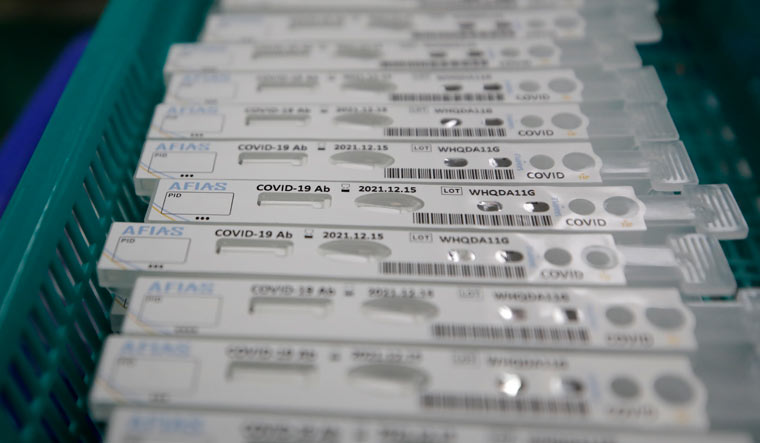Weeks after reports that recovered coronavirus patients in South Korea had tested positive again, experts from Korea's Centers for Disease Control and Prevention (KCDC) say the results were because of 'inactive' fragments of the virus picked up by the sensitive reverse transcription-polymerase chain reaction (PCR) tests.
"RNA fragments still can exist in a cell even if the virus is inactivated," KCDC said in a press release, as reported by the government-funded Yonhap News Agency.
"It is more likely that those who tested positive again picked up virus RNA that has already been inactivated," KCDC said.
According to KCDC, a total of 277 people had tested positive again as of Tuesday, adding that there was no live virus in such cases. Oh Myoung-don, head of the country's central clinical committee for emerging disease control, said the results were because of the technical limits of PCR tests.
The committee said that it was impossible for the virus to be reactivated unless the virus causes chronic infections, adding that COVID-19 was different from diseases such as HIV and Hepatitis B where the virus can stay dormant inside of a cell nucleus and later cause a chronic infection
"The COVID-19 virus does not invade inside of the cell nucleus and combine with a patient's DNA..it means that the virus does not create chronic infections," Oh said.
On April 11, the World Health Organisation (WHO) announced that it was investigating reports that recovered patients had tested positive again using PCR tests after initially testing negative. "We are closely liaising with our clinical experts and working hard to get more information on those individual cases. It is important to make sure that when samples are collected for testing on suspected patients, procedures are followed properly," the WHO said according to Reuters. The agency added that WHO guidelines on the clinical management of the disease say that patients can be discharged from hospital after two consecutive negative results are found at least 24 hours apart in a clinically recovered patient.
The agency then said that they needed systemic collection of samples from recovered patients to better understand how long they shed live virus.
On April 25, the WHO said that there was "no evidence" that recovered patients were immune from the virus, in response to reports that countries were mulling "immunity passports" for those who had recovered from the virus to be able to freely travel.
South Korea had 10,761 cases of COVID-19 as of Wednesday and had suffered 246 deaths. The country is one of the few to have stopped the spread and rapid growth of the virus, after seeing a peak in the number of cases on February 29. On Tuesday, South Korea reported just 14 new cases of which 12 were imported.
However, the KCDC in their latest statement said the country was far from completely stemming the coronavirus.


